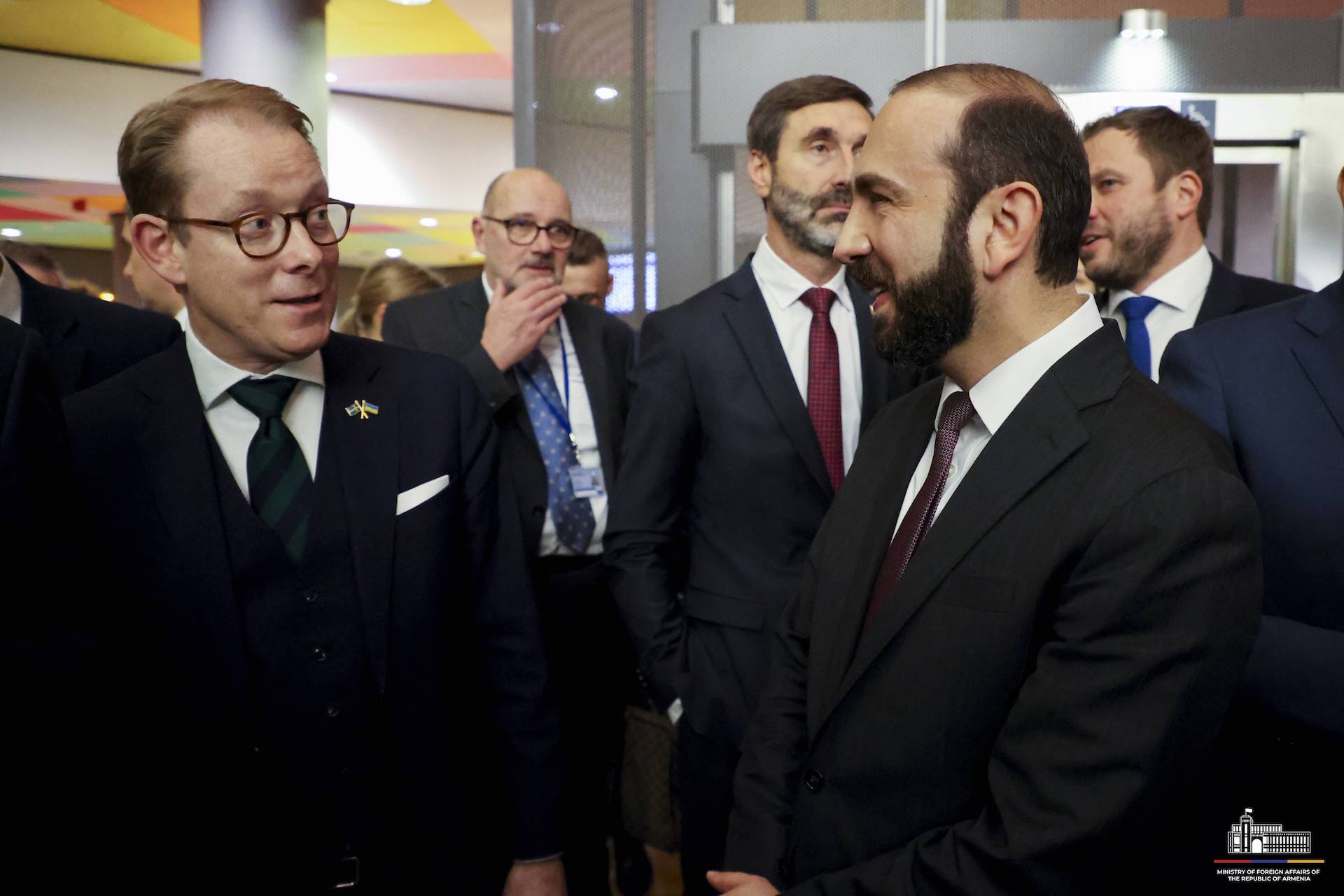
Significant Economic Reliance on Russia Stunts Armenia’s Integration With West
Significant Economic Reliance on Russia Stunts Armenia’s Integration With West
On December 11, during the EU Eastern Partnership ministerial meeting, Armenian Foreign Minister Ararat Mirzoyan welcomed the European Council’s decision to grant candidate status to Georgia and initiate membership talks with Moldova and Ukraine. Mirzoyan emphasized that Yerevan is aligned with the idea of closer integration with Europe, highlighting that the Armenian people, too, have voiced their support for this course (Armenpress, December 12). He also affirmed the Armenian government’s commitment to the “irreversible path of democratization and reforms” and underscored the country’s determination to pursue these objectives with Brussels’ support. Armenia, however, remains heavily reliant on Russia economically. This reality will hurt Yerevan’s ability to reorient its foreign policy in a more westward direction, especially over the short term.
Both domestic and Western sources have highlighted Armenia’s efforts to align with the West and distance itself from Russian influence (Radio Free Europe/Radio Liberty, September 13; Carnegie Politika, November 27; Armenpress.am, December 8). Yet, while Armenia aims to reorient its foreign policy and security relationships, significant concerns due to its close economic ties with Russia limit that transition. For this approach to be successful, Yerevan will have to enhance its economic cooperation with the West and cultivate the capacity to substitute Russian partnerships with Western counterparts in vital economic sectors.
Since the early 1990s, when Armenia gained independence, Russia has been the country’s primary partner across various economic sectors, including trade, energy, and food security. The onset of the Moscow’s full-scale invasion of Ukraine has further intensified Armenia’s economic connections with Russia. In 2022, Armenian exports to Russia surged, more than doubling to $2.4 billion, while imports experienced a substantial growth of over 40 percent, reaching $2.63 billion (Arka.am, March 20). This robust growth continued into 2023, with trade turnover increasing by 56.3 percent between January and August. Armenian exports to Russia more than doubled, reaching $2.3 billion, while imports increased by 16.1 percent to approximately $2 billion during the same period (Arka.am, October 13). Due to these developments, in the first eight months of 2023, Russia’s share of Armenian exports surged from 36.7 to 51.7 percent. Conversely, Russia’s share of Armenian imports decreased from 32.3 to 25.9 percent during the same period.
Yerevan’s considerable reliance on Moscow is most apparent in the energy sector. Russia remains Armenia’s primary source for natural gas, oil, and other fuels. In 2022, Armenia’s imports of Russian natural gas grew by approximately 6.1 percent, with Russia dominating an 87.7-percent share of these imports (Finport.am. August 18). Russian liquefied natural gas (LNG) imports also experienced a significant increase, with Russia increasing its share from 26.8 percent in 2021 to 90.3 percent in 2022. Additionally, while Armenia generates electricity from local sources, the crucial raw materials for its power plants, including gas for thermal plants and uranium for the Metsamor Nuclear Power Plant (NPP), are largely imported from Russia. This reality makes Russia the central player in Armenia’s electricity production, contributing to 70 percent of the country’s power generation (Iea.org, 2022). Beyond gas and electricity, Russia remains Armenia’s main supplier of oil products, particularly gasoline and diesel. In 2022, Russia contributed to 76.1 percent of all imported oil products (Finport.am, August 17).
Russia also has significant control over the Metsamor NPP. The power plant has supplied 35 percent of Armenia’s electricity for many years (Armeniasputnik, July 31, 2020). Russian energy company Rosatom manages the plant, and other Russian entities handle the necessary uranium for the plant’s operation and the processing of its radioactive waste. In 2014, Russia agreed to allocate about $300 million for extensive renovations at Metsamor, extending its operational period until 2027 (Arka.am, November 12, 2014). Nevertheless, despite these upgrades, the aging NPP remains a significant challenge for Armenia’s energy security. More recently, the Armenian government endorsed a draft agreement with Rusatom Service amounting to $65 million as part of the initiative to extend the operational life of the Metsamor NPP until 2036 (Interfax, December 15). The project is scheduled to take place from 2023 to 2026. Notably, Yerevan opted for this agreement despite ongoing discussions about replacing Metsamor with a new US-designed NPP and the European Union’s demands to close the station by 2026 due to security concerns (Azatutyun.am, May 30, Europarl.europa.eu, November 22).
Armenia also remains heavily reliant on Russia for strategic imports, particularly in the food sector. In 2022, almost all of Armenia’s wheat imports (99.9 percent) and corn imports (98.8 percent) originated from Russia (Finport.am, August 16). Additionally, Russian products constituted 82.2 percent of pasta imports, 72 percent of margarine oil imports, and 66.6 percent of flour product imports (Hetq.am, March 16, 2022). Russia is also a significant contributor to remittances for Armenian labor migrants, with its share increasing from 55 percent in 2021 to 70 percent in 2022, and plays a role as a prominent investor, representing 60 percent of foreign direct investments in Armenia (Arka.am, April 7, Armenpress.am, May 10).
This economic data underscores Armenia’s substantial economic reliance on Russia across various sectors, including foreign trade, energy, strategic imports, and financial inflows. This deep dependence poses considerable obstacles for Yerevan in breaking away from Moscow’s influence and pursuing deeper integration with the West. Moreover, the rising trend of re-exporting sanctioned goods from Armenia and the ongoing developments related to the Metsamor NPP appear inconsistent with Yerevan’s ambitions to align more with the West.


